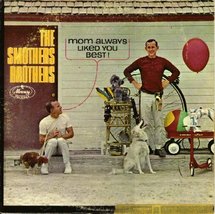weekly column
|
Each week, find a commentary on something connected to verses of Torah or another source of wisdom
|
|
Each week, find a commentary on something connected to verses of Torah or another source of wisdom
|
 The Genesis:3 Project Now Israel loved Joseph best of all his sons, for he was the child of his old age; and he had made him an ornamented tunic. Genesis 37:3 Which one of your children do you love the most? Not everyone is a parent. Anyone with an ounce of sense knows the correct answer is “I love all my children the same.” But it is not true. My own kids are now raising their eyebrows and wondering what comes next. I am not suggesting that Tommy Smothers was right when he complained to his brother Dick that “Mom always liked you best.” But what is correct is that instinctively parents love their children the way each one needs to be loved. If you want to see this idea in its brightest relief, look at a family in which one child has special needs. Whether the child’s physical or cognitive needs differ from typical children, parents attend to each of their kids in the way that is appropriate for their circumstances. A child who needs focused physical therapy is not loved better because of it; a child who reads at age three is not loved better for being given books at her reading level. Love is not about equality in a measurable sense. All three of our kids had music lessons. Only one called it a passion. All three of our kids were on sports teams. Only one enjoyed it. All three of our kids had fears to face. Only one turned it into an art form. Did we love them differently for it? Absolutely yes. And in a given moment our love felt more abundant for one than for the others without diminishing that love for them all. But I know families in which there is a “golden child.” The extra love and attention is undeserved – not because there is nothing unique about that child, rather because one or both parents are not attentive to the uniqueness of the others. Such a child was Joseph. I have no insight into Jacob’s heart or mind. The Bible makes it pretty clear that his devotion to Rachel, and therefore her eldest son, exceeded his other familial feelings. The striped coat or, if you prefer, the coat of many colors was a gift that was unmatched to the other siblings. It’s not that Jacob did not know the distinctive qualities of his other children – he describes them each toward the end of his life. But we have no report that he ever showed compassion or attention to the other children. If he felt it, we do not know. The result is catastrophic in the immediate sense and, as so much of the Torah goes on to demonstrate, down through the generations. While scholars who have a stake in making our ancestors look perfect find their justifications, reading the story without an agenda highlights the shortcomings of everyone involved. Privileging the favored son turns brother against brother, sister against sister. Defending Jacob paves the way for the pretense that one people or one nation is more beloved than all the others. Beloved by whom? For the person of faith, perhaps it is God. For the student of history, perhaps it is the course of world events. For the ethnocentric patriot, perhaps it is the nations of the world. For the racial chauvinist…well, you know. That’s not to say that sometimes there aren’t circumstances in which someone needs a little more love and attention. When a bully picks on your neighbor, you have to decide whether you will remain fair-minded and hear out both sides or show a little extra compassion to the victim. When a segment of the community is at a disadvantage, you have to decide between bootstraps and a helping hand. When your privilege gives you more than you need, you have to decide between holding tight or letting something go for the benefit of those with less than they need. Here’s what not to do: don’t hand one person or one family or one community a striped flag to wrap around themselves because you love them more. That’s the wrong answer, unless you have a flag for all, the unum for our pluribus. Maybe there is an argument to be made for gentler love and maybe one for tougher love. But there is not an argument to be made that, all things being equal (and they are), one child only gets ice cream with sprinkles for being good and the other child only must sit in the thinking chair for being bad. People who come from families with a favored child fight the demon all their lives – even if they were the favored child. Communities and countries with favored groups will always contend with resentment – especially if the favor is ever taken from the group. Which one of your children do you love the most?
0 Comments
Leave a Reply. |
Archives
October 2023
Categories |